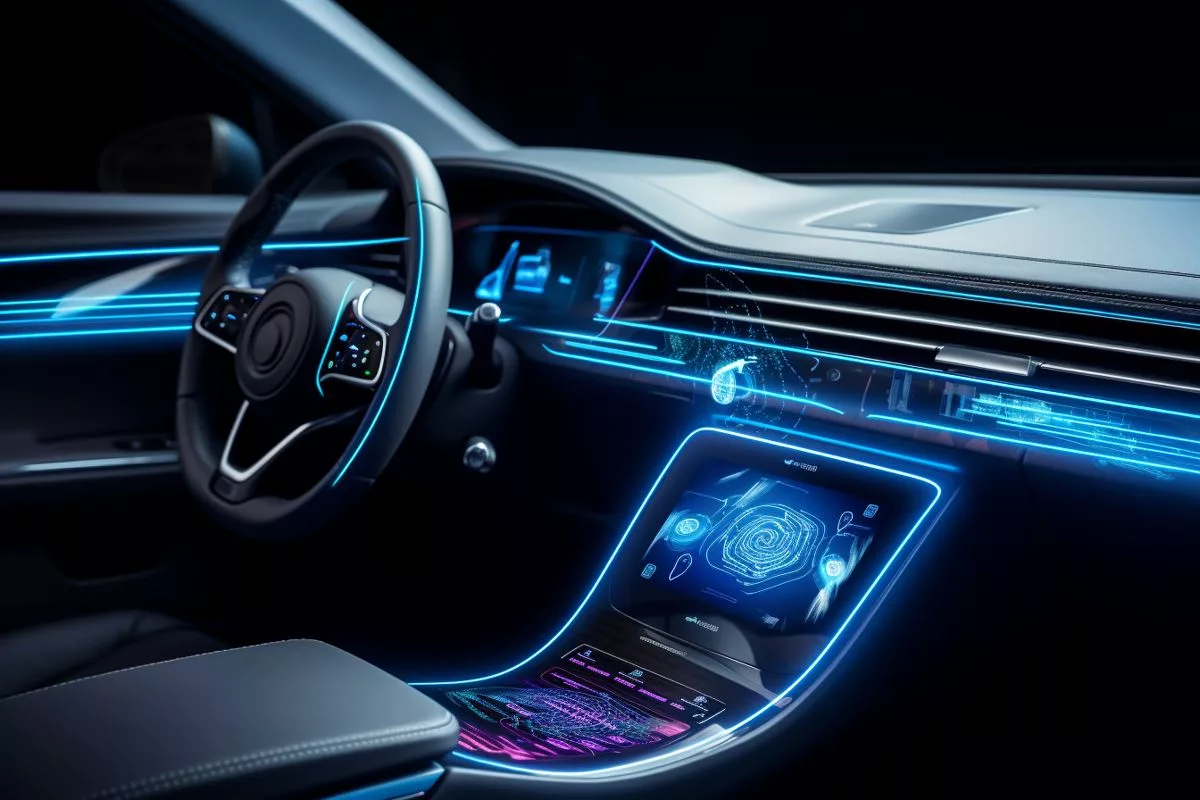Eagle Eye Defence (EED) is revolutionizing vehicle security in South Africa with a biometric system that uses fingerprint scans to verify the owner’s identity and start the car. The discreetly placed system triggers an alert to the owner’s smartphone if a thief manages to start the engine, allowing them to immobilize it from up to 100 meters away. EED’s commitment to transforming vehicle security offers a promising vision of a future where car owners can have peace of mind, trusting in the protection offered by state-of-the-art technology.
Unveiling a Game-Changer in Vehicle Security: Eagle Eye Defence. EED proposes a biometric security system that verifies the authorized car owner’s identity by scanning their fingerprint to unlock and start the vehicle. The system triggers an alert to the owner via a smartphone app if a thief manages to start the vehicle and enables them to immobilize the engine from a distance of up to 100 meters. EED’s biometric security provides superior protection compared to traditional immobilizers.
Within the rapidly advancing security sector in South Africa, a rising champion, Eagle Eye Defence (EED), is prepared to redefine the narrative of vehicle protection. The company is gearing up to unveil a ground-breaking non-OEM (Original Equipment Manufacturer) biometric security mechanism that aims to significantly reduce the alarming vehicle theft rate prevalent in the nation.
South Africa’s Vehicle Theft Problem
Vehicle theft remains a deeply entrenched problem in South Africa. Skilled thieves have become proficient at sidestepping immobilizers and penetrating keyless-entry systems. Despite the relentless emphasis on tracking devices by insurance companies, the rate of vehicle theft continues to soar unabated. However, a potential solution is on the horizon. EED is stepping up to the plate, proposing an innovative, effective system to tackle this issue.
South Africa is in desperate need of a robust solution to the rampant car theft problem. Auto thieves have honed their skills to master the art of bypassing even the most advanced immobilizers and keyless entry technologies. While insurance firms continue to endorse tracking devices, the persistently high rate of vehicle theft proves that this approach is insufficient. Yet, here is where EED brings a glimmer of hope, introducing an original and robust solution.
EED has designed a bold approach to this issue. The company’s proposed biometric security system is simple in operation but effective in delivering the much-needed protection. The authorized car owner verifies their identity by scanning their fingerprint, which allows them to unlock and start the vehicle. While this concept is not novel to the automotive industry, it has been rarely implemented in production cars accessible to the average consumer.
EED’s Biometric Approach to Security
EED maintains that biometric security provides superior protection compared to traditional immobilizers, the software of which can be manipulated by tech-savvy individuals. As EED co-founder, Iviwe Mosana, points out, “In South Africa, biometric access isn’t a luxury; it’s a crucial necessity. The daily hijacking incidents have escalated from approximately 38 to around 60 vehicles.”
Though EED is a young company, it plans to launch its product by June 2024. The projected cost will range from R400 to R580 per month under a subscription model, and the installation process should be completed within a span of two and a half hours. The company is also exploring the integration of facial recognition and eye scans in its bid to dramatically reduce vehicle theft rates in South Africa.
The EED system differentiates itself through its discreet design. The fingerprint recognition device is strategically placed in a location that isn’t easily noticeable. In the event that a thief manages to start the vehicle, the biometric system triggers an alert to the owner via a smartphone app, thus enabling them to immobilize the engine from a distance of up to 100 meters.
EED’s Commitment to Transforming Vehicle Security
EED’s biometric security system has earned provisional approval from the Independent Communications Authority of SA (ICASA) and is currently in the final stages of testing. Potential customers interested in adopting this promising technology can reach out to EED through Mosana for more details.
Eagle Eye Defence (EED) is a beacon of innovation and a driving force against rampant vehicle theft in South Africa. The company’s distinctive security approach, which marries biometric technology and a personalized touch, offers a promising vision of a future where car owners can have peace of mind, trusting in the protection offered by state-of-the-art technology.
EED is more than just a company; it’s a mission-driven organization dedicated to transforming the vehicle security landscape in South Africa. As we eagerly anticipate the company’s official product launch in 2024, there’s solid reason for optimism about significant progress in curbing vehicle theft in the nation.
1. What is Eagle Eye Defense (EED)?
Eagle Eye Defense (EED) is a company in South Africa that is revolutionizing vehicle security with a biometric system that uses fingerprint scans to verify the owner’s identity and start the car.
2. How does EED’s biometric system work?
The system verifies the authorized car owner’s identity by scanning their fingerprint, which allows them to unlock and start the vehicle. The fingerprint recognition device is strategically placed in a location that isn’t easily noticeable. In the event that a thief manages to start the vehicle, the biometric system triggers an alert to the owner via a smartphone app, enabling them to immobilize the engine from a distance of up to 100 meters.
3. How does EED’s biometric system differ from traditional immobilizers?
EED maintains that biometric security provides superior protection compared to traditional immobilizers, the software of which can be manipulated by tech-savvy individuals.
4. When will EED launch their product?
EED plans to launch its product by June 2024.
5. How much will EED’s product cost?
The projected cost of EED’s product will range from R400 to R580 per month under a subscription model.
6. How is EED committed to transforming vehicle security?
EED is dedicated to transforming the vehicle security landscape in South Africa by introducing innovative and effective systems to tackle the issue of vehicle theft. The company is also exploring the integration of facial recognition and eye scans in its bid to dramatically reduce vehicle theft rates in South Africa.









